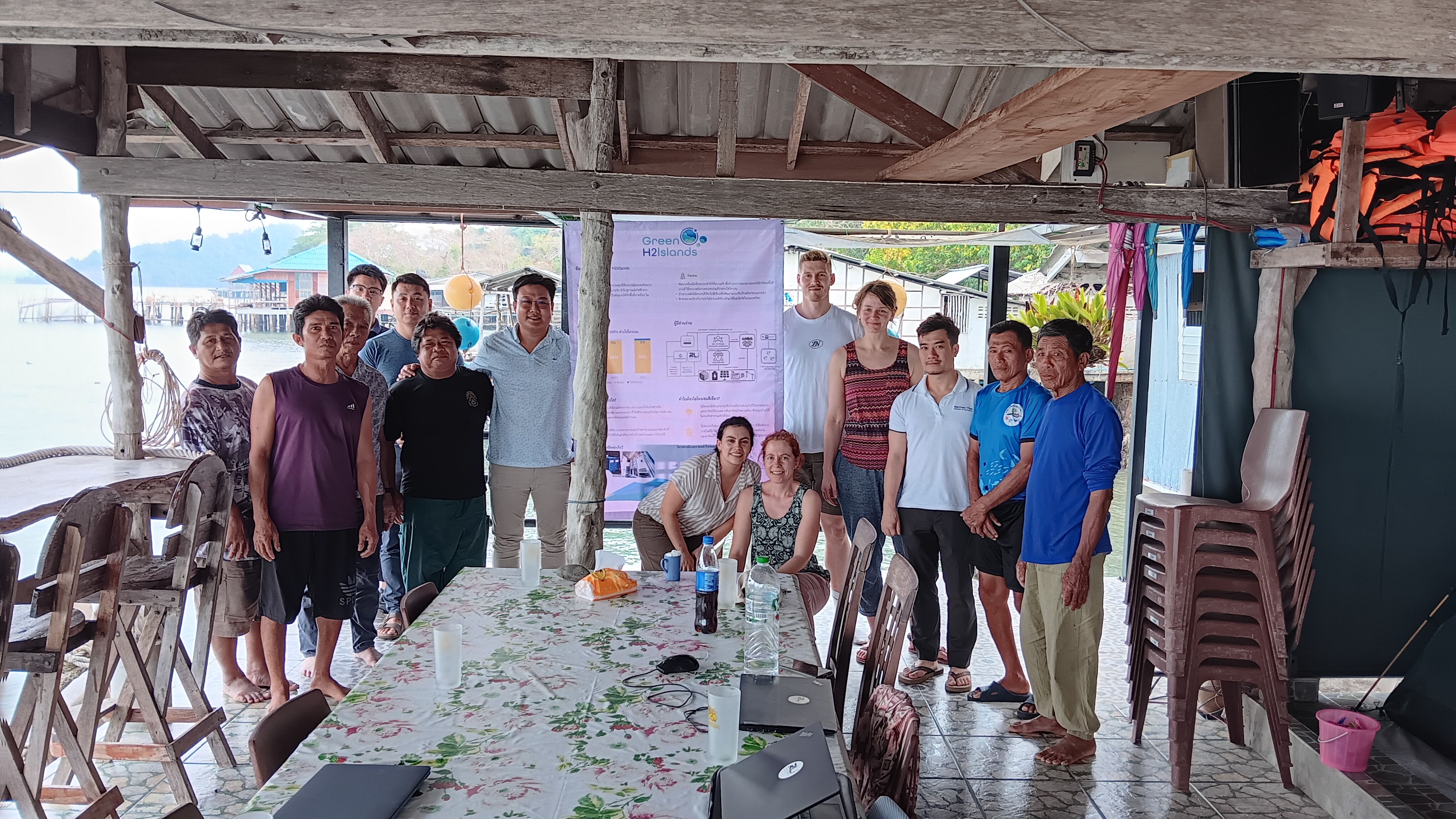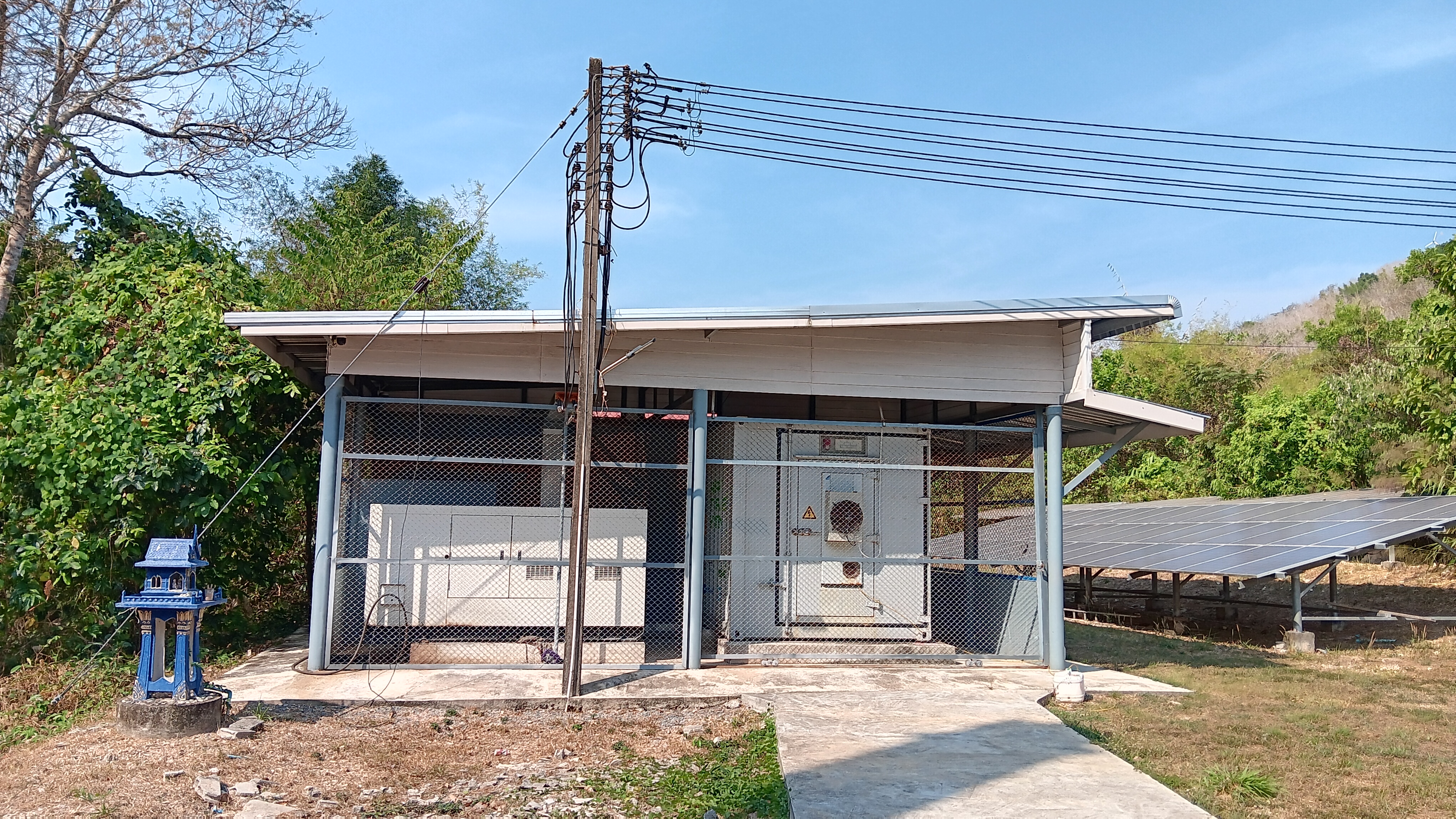
4 minute read
Green-H2 islands project: Sustainable energy supply with hydrogen on Koh Jik
Dr. Katrin Lammers, Tanai Potisat, and Samuel Jacubasch
At a time when climate change and the energy crisis are pressing global challenges, scientists and energy experts are seeking innovative solutions to ensure a sustainable and stable energy supply. A pioneering project on the Thai island of Koh Jik is investigating how integrating hydrogen technologies into an existing renewable energy system can turn the island into a model for the region using 100 per cent renewable energy supply.
THE GOAL: A CO₂-FREE ENERGY SUPPLY
Koh Jik is a remote, off-grid island on the border of Chanthaburi and Trat provinces, home to a close -knit community of 200 residents. Without a mainland grid connection, the island has relied on its own solar microgrid since 2004. In 2022, the Koh Jik ReCharge project enhanced the system with 72 kW of solar power and a 266 kWh Li-ion batter y. Today, the community generates 95 per cent of its electricity from solar energy, with 5 per cent still dependent on diesel.
The project, carried out by the Reiner Lemoine Institute, in collaboration with H2Powercell, Koh Jik ReCharge, and the German-Thai Chamber of Commerce, aims to expand the island community's existing energy system by installing an electrolyser, a fuel cell, and a hydrogen storage unit. The goal is to explore how renewable energy sources, combined with battery storage and hydrogen technologies as a seasonal storage solution, can be optimally utilised for 100 per cent renewable and a CO₂-free energy supply. The focus is not only on technical aspects, but also on the economic and operational feasibility of such a system.

If the combination of renewable energy, battery storage, and hydrogen technologies proves successful on Koh Jik, this model could serve as a blueprint for many other island communities.

DEVELOPMENT OF AN OPEN-SOURCE ONLINE TOOL FOR ISLAND COMMUNITIES
A key element of the project is the development of an open-source online tool. This tool is designed to help other island communities and interested stakeholders in the region plan their own sustainable energy systems and compare various scenarios. With a user-friendly design and a gradually expanding database, the tool developed by Reiner Lemoine Institut enables the development of tailored solutions and promotes knowledge exchange across Southeast Asia.
IMPLEMENTATION OF GREEN HYDROGEN TECHNOLOGY
H2Powercell GmbH will develop, build, and commission the hydrogen system, providing an all-in-one solution for hydrogen production, storage, and electricity generation. Using water electrolysis, hydrogen will be produced and stored in pressurised tanks, then converted back into electricity through fuel cells. Delivered as a turnkey, containerised system, it is easily shipped and installed, requiring only water and electricity connections.
Once in place, the system will store excess solar energy as hydrogen, preserving it indefinitely. During periods of low renewable energy production, it will automatically generate electricity, ensuring grid stability and reliable energy distribution — whether for daily storage or seasonal needs. Designed to enhance the island’s renewable energy capacity, it will also serve as a carbon-neutral emergency power source for Koh Jik.
STUDY ON THE MARKET POTENTIAL FOR SUSTAINABLE ISLAND ENERGY SYSTEMS
Parallel to the practical work on Koh Jik, a comprehensive potential study is being conducted. This study combines technical and socio-economic data to analyse the market potential for
similar applications on other islands in Southeast Asia. The aim is to gain scientifically sound insights that facilitate the broader implementation of CO 2-free energy systems within island contexts.
LONG-TERM VISION
If the combination of renewable energy, battery storage, and hydrogen technologies proves successful on Koh Jik, this model could serve as a blueprint for many other island communities. The ultimate goal would be a resilient, sustainable, and 100 per cent renewable energy future for remote regions.
FUNDING BY THE FEDERAL MINISTRY FOR THE ENVIRONMENT
The Green-H2Islands project is funded by the German Federal Ministry for the Environment, Nature Conservation, Nuclear Safety and Consumer Protection (BMUV), as part of the ‘Environmental Protection Export Initiative’ (EXI). The Zukunft – Umwelt – Gesellschaft (ZUG) gGmbH, and NOW GmbH, provide organisational and technical support to the project.
More information on the project can be found here:
Tanai Potisat
Founder,
Koh Jik ReCharge
Samuel Jacubasch
Development Engineer
Hydrogen Technologies,
H2 Power Cell
Contact details:
Dr. Katrin Lammers
Researcher
Off-Grid Systems
Reiner Lemoine Institut gGmbH










